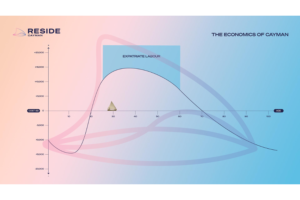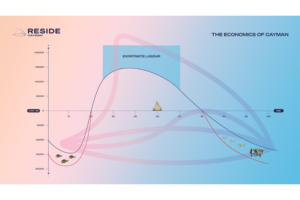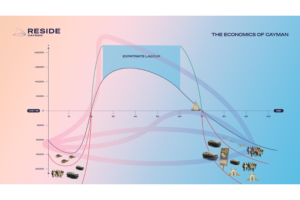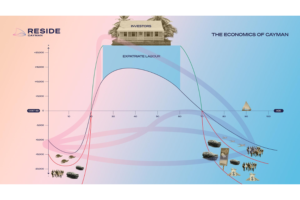By: Nick Joseph
“Miene damen und herren, segnore e signori, mes dames et messieurs, ladies and gentlemen.” Those are the words that greeted me to the finest dinner I ever ate. Later that evening, I was asked for confirmation of which sauterne I would like to pair with my foie gras. A prominent Russian sitting in proximity to me asked for clarification. Not a problem for the Portuguese waitress, who, in addition to conversing easily in German, Italian, French and English was able to assist in near fluent Russian.
I was in Switzerland, and it was 10 years ago.
“Would y’all like a Bud with your burger?” was not part of the repertoire.
Upscale. Sophisticated. Exclusive. Expensive. It was memorable and like most things of the highest quality, it was worth it.
The waitress was a professional. Her training had taken years. She was a migrant worker, and like her Swiss colleagues, well paid for her expertise. Gstaad is nice. Not her forever home though. One day she was to return to her native Portugal. The cost of living demanded it.
In any event, she could be more content with her sardines and occasional presunto iberico and Port. Never a Bud and a burger.
But beneath the surface, all may not have been perfect. Had I asked for some scotch bonnet on the side, some stew conch, callaloo or a rundown, I am confident the waitress would have had no idea what I was talking about.
This is my company’s logo, developed to represent aspects of our home.
Do you see the conch? The catboat? The stingray? Something else? It is all a question of culture and perspective. We each have a vantage point. A perception.
I am a Caymanian, but my origin, literally, is Jamaican. An analysis of the law surrounding my birth could also lead to the conclusion that I was also born Iranian. Not terribly helpful.
I have lived my life in Cayman but have seen much of the world. My background, education, training and experience give me a unique perspective — and so do each of yours. My age and position now give me the confidence and ability to say what I see, as I see it, whether that be convenient or popular. We are here to share vantage points, perhaps even to reassess our perspectives.
Cayman is my home. Whilst I acknowledge we are sometimes demonstrably “a work in progress”, we have the potential to be superb.
My bias for Cayman (and our people) is perhaps apparent, but large numbers of discerning businesspeople and families from around the world, including Gstaad, are coming here and staying here. The resulting investment and development are all around us, the potential benefits significant.
We feed our rapidly expanding economy with labour from all around the world. That labour, often highly skilled and of the most exemplary character, is invited on a journey. The initial stage is for nine years.
Those who wish to remain can qualify for permanent residency under a points system. Thereafter, most permanent residents (under our existing regime) will advance to become Caymanians. Our workforce and our ability to attract and welcome and retain the best is key to much of what we have achieved.
But we face a risk that, from my vantage, must be addressed. Our successes, as individuals, as businesses, and as a country, must be and remain relevant to the people of these Islands — if it is to be sustained.
Like all countries, we have an economy that requires balance. The government needs income to provide for the needs of the people. The needs, like the population, are growing.
Two of the most useless (and expensive) things on earth are a newborn human baby and a newly qualified lawyer. They are filled with immense potential, but first must be fed, medicated, educated, clothed and housed. Eventually, they are destined to become contributing members of society.
Even the lawyers.
We eventually create, earn, pay fees and duties (just don’t call them taxes), and contribute to government’s coffers. As we retire, we will hopefully have saved enough, but the trajectory is that many of us have not and will run out of funds, ending our time as most of us started, reliant on government for support.
For the system to be sustained, our collective cost to government cannot ultimately become more than our collective contribution. But Cayman has a secret weapon: expatriate labour.
We do not have to medicate, educate, or feed foreign workers in their formative years. That obligation falls to their homelands.
Expatriate labour usually arrives here fully prepared. It serves us and contributes to our coffers (including through the payment of work permit fees) and consumes nothing. Even its healthcare is paid for by private insurance. Its children are expected to be educated in private schools. Traditionally, it would leave these Islands and return “home” in retirement, never becoming a corresponding burden on this society while advancing in years.
We took that resulting dividend and invested it in many things, including our airline, our civil service, and our turtle centre. But we changed the rules of the game.
Today, we find ourselves spending on all the things we have traditionally spent on — and more. The realities of underfunded pensions and healthcare liabilities are dawning on us. They have been there for a while. We are only now fully taking notice.
We continue to attract investors and, indeed, must to maintain an appropriate balance.
However, we are not paying 35 Swiss francs an hour for most of our imported labour, no matter how skilled — a least not as a guaranteed base. We serve foie gras and sauterne at prices like those in Gstaad, but no one seems to be sent from here to hotel training school in Lausanne, and few benefit from multi-year apprenticeships.
While our burgers remain good and we are gaining excellence in patisseries, fewer and fewer of our newest chefs have mastered breadkind or even know what it is.
My reference to the culinary industry is convenient. The principles apply across all industries. We achieve world-class things at world-class standards, but is the pace of our advancement and sophistication pulling too far ahead of our own people’s ability to service it?
Our commercial aspirations and ambitions cannot become disconnected from our permanent population. Dreams of betterment, advancement, and opportunity cannot be allowed to become cast as unattainable illusions.
If the Caymanian people are left behind, our march forward risks trampling our future.
The warm welcome of the Caymanian people is ultimately the foundation on which our economy stands. There should be no hesitation in answering: “Who are we developing for?”
We also risk pricing ourselves out of our own homes that many have toiled for generations to build.
I believe we collectively have a duty to protect our legacy. With our great privilege and opportunity comes responsibility. Access to labour from overseas carries a reciprocal obligation to not only employ where possible but also to train and mentor local people in meaningful ways. A culture of compliance is preferable. Enthusiastic participation optimal.
We must take steps to empower the Caymanian people. In our quest for exclusivity, Caymanians are the one demographic that cannot be excluded.
Handouts do not generate a return. My encouragement, instead, is for more of a hand-up. A hand-up can bring multi-generational returns.
It is my hope that every Caymanian will be equipped with the opportunity and, through their toil and with the support of many gathered in this room, be enabled to achieve their maximum potential and to participate more fully, deservedly, and sustainably in all that our economy and community can offer.
We ultimately need to ensure that we have a secure place, going around the dinner table, for our customers, our neighbours, and ourselves to be asked: “Y’all want a Caybrew with your burger, a sauterne with your foie gras, and… some swanky with your turkle?”
We need to get this right. If we do not, in a generation or two, those who choose and have the wherewithal, born here or otherwise, may feel it necessary to retreat to a more affordable retirement in Portugal if that lovely country will have them.
I don’t really like sardines, and my Portuguese is lousy.
I am not planning on going anywhere.




